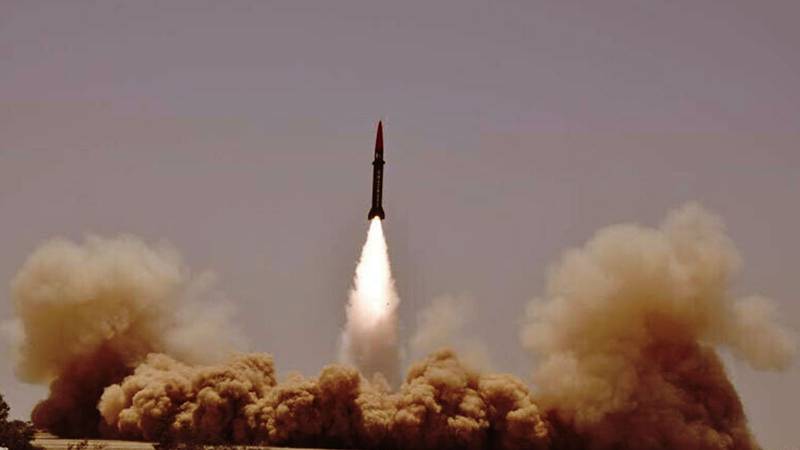
The United States announced new sanctions on Wednesday targeting four entities linked to Pakistan's ballistic missile program. According to the U.S. Department of State, the sanctions are aimed at individuals and organizations contributing to the proliferation and delivery of weapons of mass destruction.
The sanctions were imposed under Executive Order 13382, which is designed to target entities involved in the spread of weapons of mass destruction and their delivery systems, such as missiles. The four entities being sanctioned are Pakistan's National Development Complex, which is responsible for the country’s ballistic missile program, and three companies—Affiliates International, Akhtar and Sons Private Limited, and Rockside Enterprise. These entities have been accused of supplying materials and equipment for Pakistan's long-range missile development.
The U.S. Department of State’s statement said that these actions were taken due to the ongoing risks posed by Pakistan’s missile development. The sanctions aim to prevent activities that could contribute to the development, acquisition, or use of missiles capable of delivering weapons of mass destruction, it added. The U.S. claims these entities have been involved in or have attempted to engage in actions that could materially contribute to missile proliferation.
In a press release issued on Thursday, the Foreign Office stated that Pakistan considers the U.S. decision to impose sanctions on the NDC and three commercial entities as unfortunate and biased. Pakistan’s strategic capabilities are meant to defend its sovereignty and preserve peace and stability in South Asia. The latest installment of sanctions defies the objective of peace and security by aiming to accentuate military asymmetries. Such policies have dangerous implications for the strategic stability of our region and beyond.
“Pakistan’s strategic program is a sacred trust bestowed by 240 million people upon its leadership. The sanctity of this trust, held in the highest esteem across the entire political spectrum, cannot be compromised,” the statement read.
“We also regret the imposition of sanctions on private commercial entities. Similar listings of commercial entities in the past were based on mere doubts and suspicions without any evidence whatsoever. While claiming strict adherence to non-proliferation norms, licensing requirements for advanced military technology to other countries have been waived off in the past.”
“Such double standards and discriminatory practices not only undermine the credibility of non-proliferation regimes but also endanger regional and international peace and security,” the statement read.
In September, the U.S. imposed similar sanctions on five entities and one individual involved in expanding Pakistan’s missile program. U.S. Department of State spokesperson Matthew Miller alleged that the Beijing Research Institute of Automation for Machine Building Industry had worked with Pakistan to procure equipment for testing rocket motors for missile systems like Shaheen-3 and Ababeel, as well as potentially larger missile systems.
In October 2023, the U.S. sanctioned three Chinese companies—Hubei Huachangda Intelligent Equipment Co, Universal Enterprise, and Xi’an Longde Technology Development Co—accusing them of supplying missile-related equipment to Pakistan. Additionally, Pakistan-based Innovative Equipment and a Chinese individual were also sanctioned for knowingly transferring equipment in violation of missile technology restrictions.

